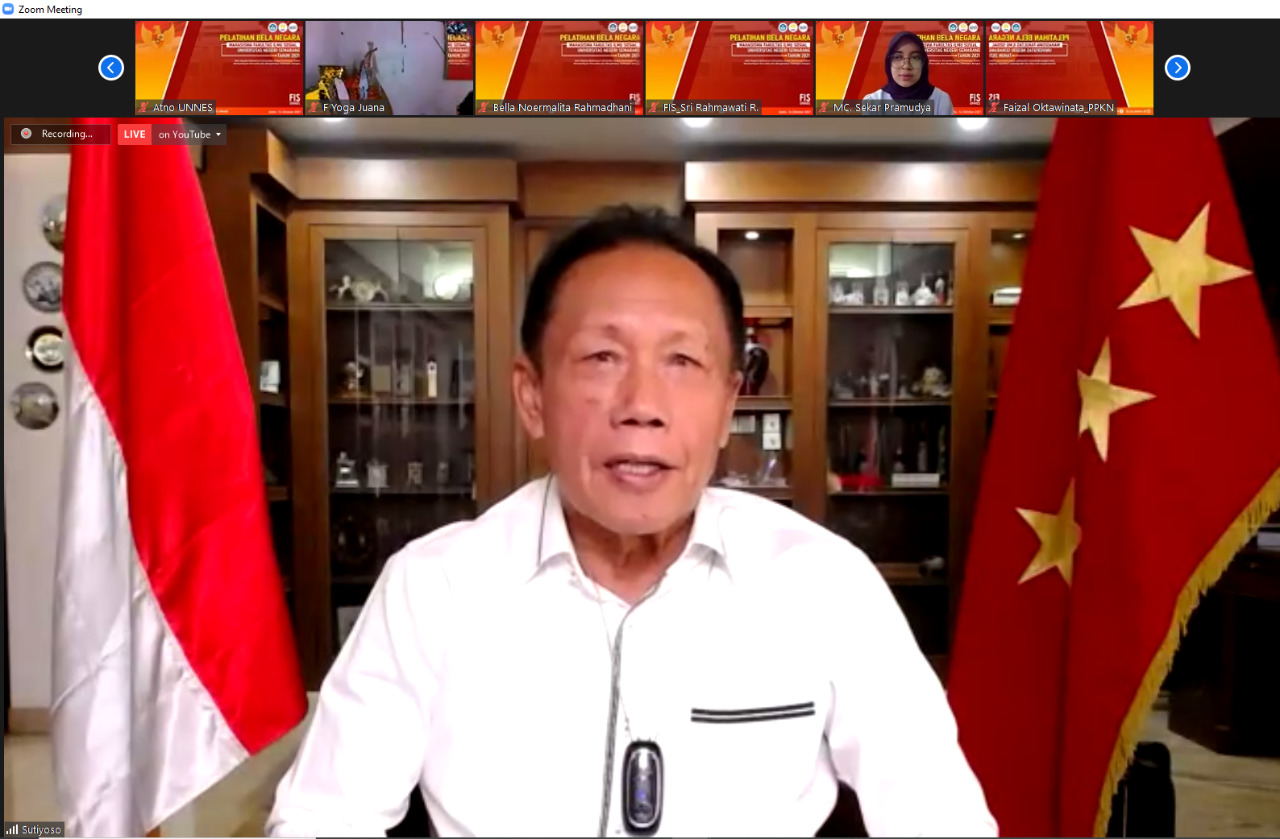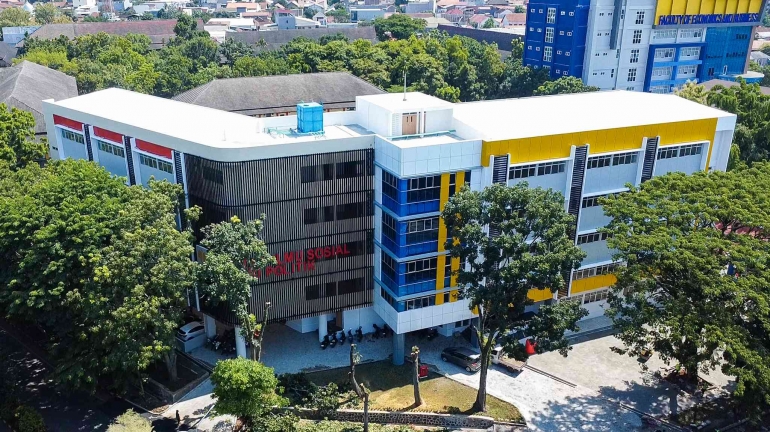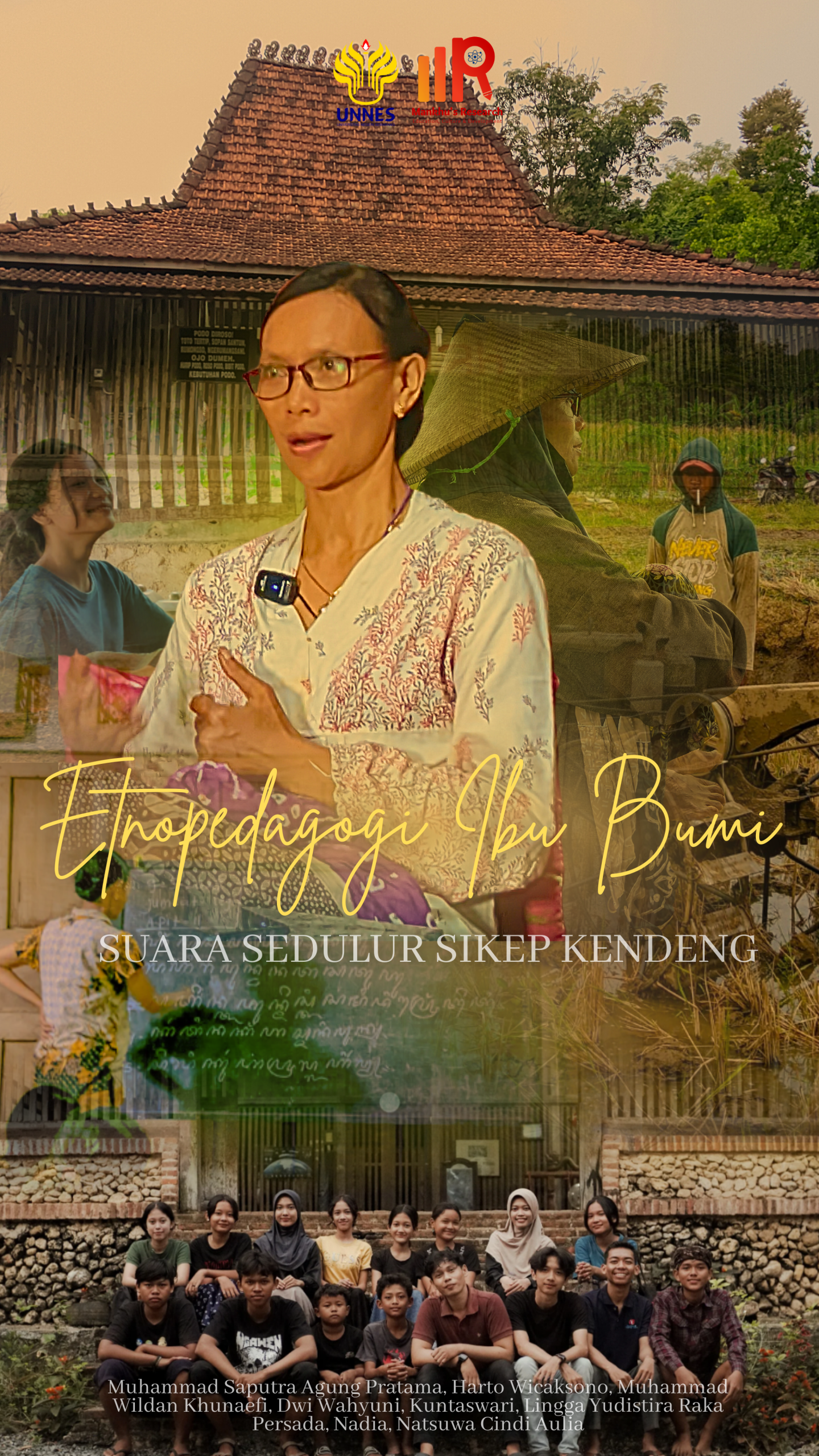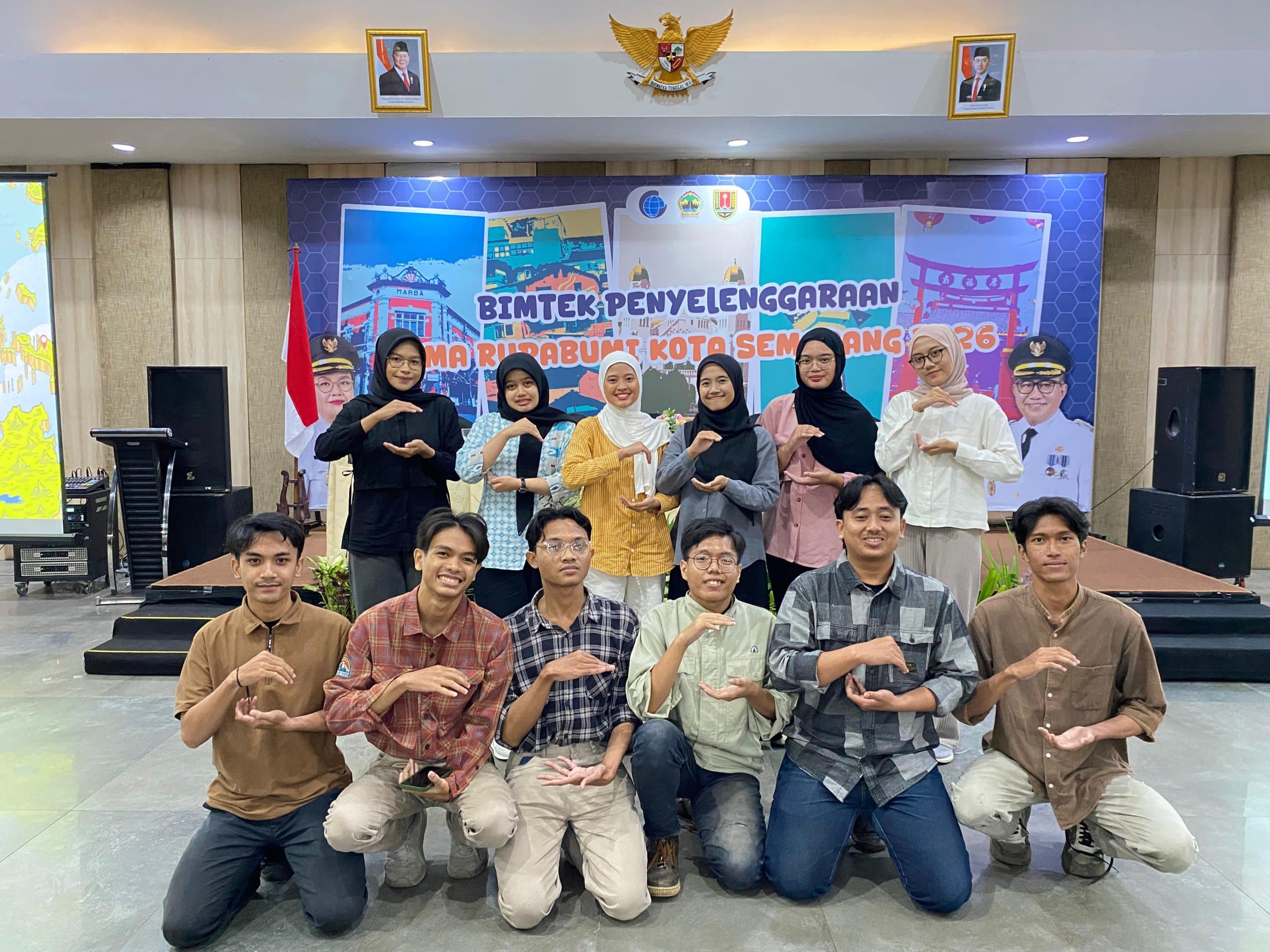Semarang FIS, UNNES. “Negara itu seperti mahluk hidup yang, dari asalnya tidak ada, lahir kemudian berkembang dan ahirnya akan mati. Tapi, Sebagai Negara Indonesia harus tetap hidup, maka perlu dibela oleh seluruh komponen warga negara Indonesia tanpa terkecuali, termasuk juga komponen supra infrastruktur politik yang terdiri dari lembaga negara dan organisasi masyarakat. Apa yang dibela? Yang dibela adalah kedaulatan negara, keutuhan wilayah, dan keselamatan bangsa sebagai perwujudan kelangsungan Hidup negara-bangsa”.
Hal itu ditegaskan oleh Sutiyoso, Putra asli Semarang yang berhasil menjadi Gubernur DKI Jakarta dalam kegiatan Pelatihan Bela Negara yang diselenggarakan oleh FIS UNNES secara daring, Sabtu, 16 Oktober 2021.
Lebih lanjut Sutiyoso memaparkan bahwa bela negara bukan wajib militer, karena sudah diatur sedemikian rupa sesuai dengan peraturan yang berlaku, misalnya UUD NRI 1945 pasal 27 (3) yang menyatakan bahwa setiap warga negara berhak dan wajib ikut serta dalam upaya pembelaan negara. Begitu juga dengan asal 30 (1) yang menyatakan bahwa tiap-tiap warga negara berhak dan wajib ikut serta dalam usaha pertahanan dan keamanan negara. Bela negara merupakan bagian dari Sistem Pertahanan Keamanan Rakyat Semesta (SISHANKAMRATA) yang melibatkan seluruh warga negara, wilayah dan sumber daya nasional lainnya, serta dipersiapkan secara dini oleh pemerintah dan diselenggarakan secara total, terpadu, terarah, dan berlanjut.
Sebagai negara, Indonesia menghadapi ancaman, baik ancaman aktual maupun ancaman potensial. Secara aktual ancaman yang dihadapi Indonesia, yaitu pelanggaran Wilayah Perbatasan/Intervensi asing, separatisme dan Pemberontakan bersenjata, Perompakan, pembajakan dan penyanderaan WNI, terorisme dan radikalisme, ancaman perang psikologikal, serangan senjata biologis, bencana alam dan lingkungan, pencurian kekayaan alam, wabah penyakit, peredaran dan penyalahgunaan narkoba, dampak revolusi industri 4.0 dan mayarakat 5.0. Adapun secara potensial, ancaman yang dihadapi berupa perang konvensional atau konflik terbuka (Invansi asing), ancaman senjata nuklir, krisis ekonomi, ancaman pandemi, imigrasi asing.
Terhadap ancaman tersebut maka diperlukan bela negara, yaitu tekad, sikap dan perilaku, serta tindakan warga negara, baik secara perseorangan maupun kolektif dalam menjaga kedaulatan negara, keutuhan wilayah, dan keselamatan bangsa dan negara, yang dijiwai oleh kecintaannya kepada NKRI yg berdasarkan Pancasila & UUD 1945 dalam menjamin kelangsungan hidup bangsa dan negara dari ancaman.
Selanjutnya, Sutiyoso menyampaikan harapan kepada mahasiswa, yaitu: 1) selalu tanggap terhadap perubahan dan perkembangan lingkungan yang sangat cepat, 2) senantiasa meningkatkan kompetensi dirinya sebagai mahasiwa yang unggul, kompetitif, berwawasan kebangsaan dan berjiwa bela negara, 3) sebagai AGEN PERUBAHAN dalam mewujudkan Sishankamrata, 4) Sebagai ROLE MODEL bagi generasi muda Indonesia dalam memiliki integritas dan berkarakter, 5) kreatif dan inovatif dalam membangun dirinya sebagai calon pemimpin bangsa di masa depan karena generasi yang tua pada saatnya akan habis dan harus diganti oleh generasi berikutnya.
Dibagian ahir, Sutiyoso menyampaikan bahwa: 1) bela negara adalah hak dan kewajiban warga negara yang menjadi amanat konstitusi, tapi juga sebuah keniscayaan, 2) pembinaan Kesadaran Bela Negara merupakan bagian upaya membangun sense of defence warga negara terhadap negaranya, membangun kewaspadaan dini dan kesiapsiagaan warga negara menghadapi ancaman yang yang membahayakan kedaulatan negara, keutuhan wilayah dan keselamatan bangsa, 3) kesadaran bela negara adalah modal sosial sekaligus soft power bagi bangsa Indonesia dalam menghadapi kompleksitas ancaman, yang juga sebagai landasan membangun Sistem pertahanan negara.
Sutiyoso juga memberi motivasi kepada mahasiswa agar senantiasa optimis menghadapi masa depan. Beliau memberikan contoh dirinya sendiri yang berasal dari desa, tapi dengan perjuangan berhasil menggapai cita-cita.




